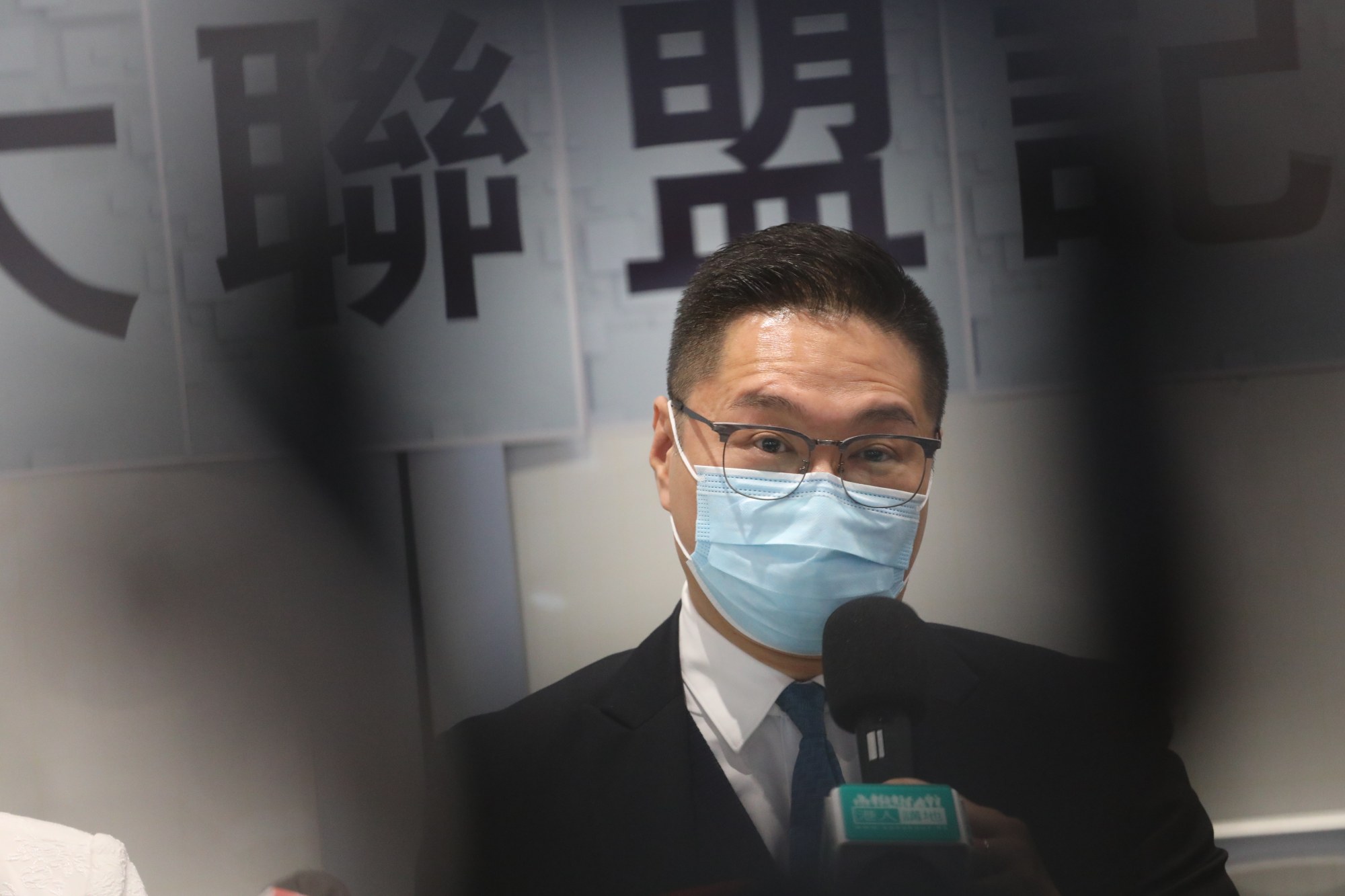
3 major political parties call for justice department to appeal against court dismissal of ‘Glory to Hong Kong’ ban bid
- Source close to government tells Post that appeal against High Court decision likely
- Lawmaker warns the High Court ruling could set precedent for future cases if appeal not lodged
A source close to the government told the Post the administration would probably appeal against the High Court’s rejection of its application for an injunction to ban the promotion of “Glory to Hong Kong”.
Lawmakers from the Democratic Alliance for the Betterment and Progress of Hong Kong (DAB), the Hong Kong Federation of Trade Unions (FTU) and the Liberal Party posted on Facebook within hours of each other on Friday asking government lawyers to consider an appeal against the ruling.
Lawmakers from the three political groups said there was a need for the government to outlaw the protest song once and for all and denied that they had coordinated their calls for an appeal to be lodged.

Liberal Party chairman Peter Shiu Ka-fai told the Post the government was forced to resort to legal action because search engines and streaming platforms had refused to remove the song.
“The Hong Kong government has already expressed the inappropriateness of this song. [ …] If self-discipline [among online platforms] resolves the issue, we don’t need to resort to an injunction,” Shiu said.
The judgment added a ban might not compel internet search giant Google and other technology firms to remove the song from their services.
But Mr Justice Anthony Chan Kin-keung said he would have ruled in favour of the government had it not been for these problems and the injunction’s lack of usefulness,
Chan maintained the potential chilling effects of a ban would not outweigh the fundamental need to safeguard national security.
But Shiu said he was convinced the government would not have applied for an injunction if existing legislation, such as the national security law, could have been used instead.
Holden Chow Ho-ding, the DAB vice-chairman and a lawyer, also rejected Chan’s argument about the potential chilling effects of the injunction in a Facebook post on Friday.
He told the Post later he found the legal reasons behind the ruling faulty.
“It is ubiquitously known that this song is used to promote Hong Kong’s independence. This is completely a national security problem, why would freedom of speech be dragged into this?” he said on Facebook.
Chow warned that the court ruling could also set a legal precedent for future cases if the government decided not to appeal.
Kingsley Wong Kwok, the FTU chairman, said it would be a mistake to drop the battle for an injunction and risk national security.
“I think the government, courts and the judiciary all need to deal with this problem. We should not sacrifice national security over technical issues, for the nation’s security is the bottom line,” Wong said.
A justice department spokesman on Friday said officials would study the judgment and consider the next move.
Secretary for Justice Paul Lam Ting-kwok lodged the application last month in a bid to bar promotion of “Glory to Hong Kong” through “broadcasting, performing, printing, publishing, selling, offering for sale, distributing, disseminating, displaying or reproducing in any way”.
The authorities maintain the song contained lyrics that threatened national security, such as an appeal to “Liberate Hong Kong” in a “revolution of our times”.
The expression was found to be capable of carrying a secessionist meaning in the city’s first national security trial.
“Glory to Hong Kong” was played by mistake instead of the Chinese national anthem “March of the Volunteers” at several overseas sports events.
The anti-government song gained popularity among Hong Kong’s mostly young protesters soon after its creation during the unrest triggered by a now-withdrawn extradition bill.

